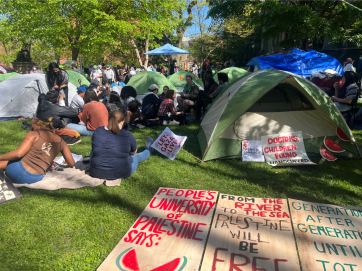The National Association of Scholars is delighted that 52 Harvard University professors have formed a Council on Academic Freedom. This group will “advocate for the free and civil exchange of ideas on campus” by promoting the principles of free inquiry, civil discourse, and intellectual diversity. Harvard, no less than other universities, needs professors who defend intellectual freedom—and freedom in general. But because Harvard is Harvard—the oldest and most respected college in the country—the creation of the Council on Academic Freedom sends a message that will reverberate throughout American higher education.
That message is that faculty everywhere face a choice: either to fight for academic freedom or to watch it disappear. Those who imagine that academic freedom will continue without special efforts to preserve it are mistaken. American higher education is sinking into a morass of ideological conformity. A great many faculty members dislike having to endorse views they privately disagree with, avoid subjects that activists say are off-limits, and apologize for imaginary infractions—but they see no practical way to resist. The creation of the Council on Academic Freedom shows that there is indeed a way to resist.
NAS hopes that this new group will inspire many imitators, perhaps even outside the academy. The crisis of intellectual unfreedom in American higher education, after all, has spread beyond the campus to corporations, the media, government, the arts, and public life generally. Americans once expected that the people in charge of our institutions would protect them from the waves of irrational and destructive enthusiasm that sometimes come crashing over our republic. Not this time. The class currently granted with American leadership is, by and large, complicit with those who reject our freedoms in favor of shortcuts to what they say is "justice." Even tenured professors at Ivy League universities have been subject to such dishonorable treatment, as when the Harvard administration resorted to shady maneuvers to punish Roland Fryer.
The Council’s initial announcement notes that they will “sponsor workshops, lectures, and courses” on academic freedom and support colleagues under fire. Their main tools will be “persuasion and debate” and the whole project will be led by the faculty. These are constructive first steps. NAS hopes and expects that, in time, the Council on Academic Freedom will go further and join the efforts of external advocacy groups for academic and intellectual freedom such as the American Council of Trustees and Alumni, the Foundation for Individual Rights and Expression, or (indeed) the NAS.
Photo by Somesh Kesarla Suresh on Unsplash













